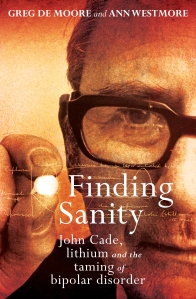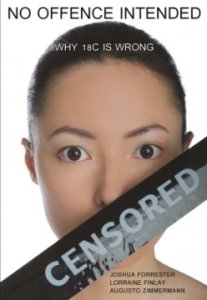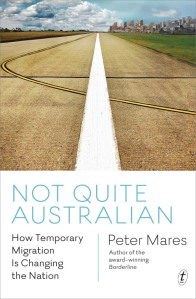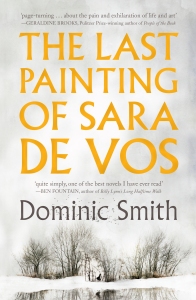Appearing in Australian Spectator, 10 December 2016
http://spectator.com.au/2016/12/best-of-2016/
Best of 2016
After a slow start 2016 turned out to be a pretty good year for Australian writing, with excellent books across a range of subjects. One of the best was Finding Sanity (Allen & Unwin), a biography of John Cade, the Melbourne doctor who developed lithium as a treatment for bi-polar disorder and other mental health problems. Greg De Moore and Ann Westmore, both senior medical professionals, brought a wealth of expertise to bear on the technical issues discussed in the book but they largely let the story tell itself, which is appropriate for a man known for his modesty and integrity.
Self-effacing is not a term that anyone would apply to Chris Mitchell, former editor-in-chief of the Australian. While his book Making Headlines (Penguin) is punctuated with name-dropping and political gossip it is also a worthwhile read, especially over the mechanics of producing a newspaper that people want to read without sacrificing quality. When Mitchell came to the job he believed that the newspaper had drifted too far to the Left and put great efforts into dragging it back to the centre. In hindsight he thinks he may have been too close to Rudd, due to their past associations. But he was determined to make the newspaper the essential forum for political debate, even if it meant continual assaults from the denizens of the blogosphere and an army of axe-grinders.
The Turnbull Gamble (Melbourne University Press) by Wayne Errington and Peter van Onselen also has its share of gossip, often dressed up as serious commentary. It has the feel of a quickie book, cashing in on the election aftermath, more journalistic than academic. Nevertheless, it provides some interesting insights, such as the connection between Turnbull’s personality and his political strategies, and how he fits into Liberal Party culture. As for whether replacing Abbott with Turnbull was worth the risk, Errington and van Onselen conclude that it probably was, but he still faces a huge task in leading the government through a second term. The book is not as even-handed as it purports to be – there is often a sense that the authors are looking for nasty things to say – but is certainly better than Andrew Street’s silly The Curious Story of Malcolm Turnbull, the Incredible Shrinking Man in the Top Hat (Allen & Unwin), about which the less said the better.
If Turnbull is defined by a powerful desire to be liked, columnist Andrew Bolt is quite happy to bluntly state his views and then defend them against all comers. Worth Fightng For (Wilkinson Publishing) is a collection of his columns, and he has a good time puncturing the self-righteous pomposity of the professional whingers of the Left. He insists that he has not moved to the Right over the course of his career but that the Left has moved out to the fringe, loudly promoting an agenda out of touch with mainstream values. A problem with the column format is that it does not provide much opportunity to put forward alternatives, but Bolt would probably say the best alternative is usually a good dose of common sense.
There is a similiar theme in No Offence Intended: Why 18C is Wrong (Connor Court), in which legal academics Joshua Forrester, Lorraine Finlay and Augusto Zimmerman take a close look at the controversial clause of the Racial Discrimination Act. They argue that the international treaties on which the section is based do not, in fact,  provide the required level of legal support, and that the section itself is too broad and vague to be constitutional. Along the way, they look at Australia’s common law heritage and the implied right of political communication. There are times when the complex legal arguments are difficult for a non-lawyer to follow but overall the book is a valuable contribution on a critical issue.
provide the required level of legal support, and that the section itself is too broad and vague to be constitutional. Along the way, they look at Australia’s common law heritage and the implied right of political communication. There are times when the complex legal arguments are difficult for a non-lawyer to follow but overall the book is a valuable contribution on a critical issue.
Anyone interested in political freedom should take a close look at In Other Words (NewSouth), a collection of 100 short essays by Goenawan Mohamad, one of Indonesia’s foremost public intellectuals. Most of the essays, spanning nearly four decades, appeared as columns in the controversial magazine Tempo (which he also edited for a significant period). Ably translated by Jennifer Lindsay, a cultural researcher at ANU, the pieces examine Indonesia’s struggle to move from authoritarianism to its own version of democracy, although Goenawan also looks at the cultural and literary life of the country. Several of his later columns deal with the rise of militant Islam, and act as reminders that journalism in some places can entail greater dangers than poor reviews.
Not afraid to tackle a complex policy issue is Not Quite Australian: How Temporary Migration Is Changing the Nation (Text Publishing) by Peter Mares. He points out that while the formal immigration program works pretty well there is a maze of  permits, visas and special arrangements that have given rise to a massive pool – about a million people, according to official figures – of temporary immigrants. Most of these categories were established with good intentions but they have grown well beyond their intended purposes, leading to category-jumping and criteria manipulation. The system is, basically, a mess, and Mares deserves credit for trying to unravel it. He sometimes seems overly willing to believe what someone or another tells him and tends to ignore clear cases of rorting of the system, but nevertheless this book is one which should be read by policymakers and concerned citizens alike.
permits, visas and special arrangements that have given rise to a massive pool – about a million people, according to official figures – of temporary immigrants. Most of these categories were established with good intentions but they have grown well beyond their intended purposes, leading to category-jumping and criteria manipulation. The system is, basically, a mess, and Mares deserves credit for trying to unravel it. He sometimes seems overly willing to believe what someone or another tells him and tends to ignore clear cases of rorting of the system, but nevertheless this book is one which should be read by policymakers and concerned citizens alike.
Only in Australia: The History, Politics and Economics of Australian Exceptionalism (Oxford), a collection of essays edited by economist William Coleman, delves into the processes that gave the country its unique character. Much of it derives from the very large role ascribed to government, which is historically seen as an umpire and a provider of services rather than a potential threat to liberty. Australia is not, for example, the only country where the government built railways, but it was one of the few to keep them in the public sector long after the need was gone. Indeed, the very thought of privatisation is an anathema to a large segment of the population, and there is a deep-seated belief that governments should have an active, detailed role in setting employment conditions. Some of these essays get a bit lost in academic analysis although generally Only in Australia provides some good insights on how we got from where we started to where we are.
A different take on history comes from Mark McKenna’s From the Edge (Melbourne University Press), which looks at a series of hardly-known stories from the early days of the country’s (white) settlement. The tale of the shipwrecked sailors who walked nearly 700 kilometres along the south-east coast to reach Sydney is remarkable; the attempt to found ‘a new Singapore’ on the northern tip of Australia was as eccentric as it was doomed. The recurring theme in these stories is the interaction with indigenous peoples; hearing the Aboriginal perspective on the beaching of Cook’s ship Endeavour at the place that would become Cooktown provides a new, and important, level of meaning.
Another story that has, surprisingly, gone untold is The Last Fifty Miles: Australia and the End of the Great War (Penguin) by Adam Wakeling. The ‘fifty miles’ is the distance from Villers-Bretonneux to Mountbrehain, and the advance was expensive – 5,500 men from the Australian Imperial Force lost – but the breaking of the German defensive line was effectively the end of the war. Wakeling draws on letters, diaries, speeches and army records, and mixes the account of the military actions with the politics of the home front.
The past year has also seen some outstanding fiction. Dominic Smith’s The Last Painting of Sara de Vos (Allen & Unwin) is a mesmerising, multi-layered novel,  moving between Golden Age Holland, Manhattan in the 50s, and contemporary Sydney. The central figure, a respected art curator, is asked to oversee a show of paintings from women artists of the Golden Age. The key dilemma is that in her young days she forged a key work – and now both the original and the fake are on their way to her. But this is more than an art-based sleuth story, and connections and parallels slowly build up between the characters. The final twist, when it comes, provides a satisfying sense of everything being exactly as it should be.
moving between Golden Age Holland, Manhattan in the 50s, and contemporary Sydney. The central figure, a respected art curator, is asked to oversee a show of paintings from women artists of the Golden Age. The key dilemma is that in her young days she forged a key work – and now both the original and the fake are on their way to her. But this is more than an art-based sleuth story, and connections and parallels slowly build up between the characters. The final twist, when it comes, provides a satisfying sense of everything being exactly as it should be.
A work of astonishing imagination is Their Brilliant Careers: The Fantastic Lives of Sixteen Extraordinary Australian Writers (Black Inc) by Ryan O’Neill. It sounds like the sort of semi-pompous dissertation loved by the glitterati but the point is that it’s all fake. O’Neill has entirely made these writers up, and woven them into actual history, to examine the peculiarities of Australia’s literary institutions and, even more, the publishing industry. One of the ‘writers’ churns out hugely successful bush tales but has never left Sydney. Another has literally sold his soul to become a great writer but somehow all his works manage to escape publication. A researcher believes she has found the source code for all Australian literature but the evidence keeps slipping away. It’s all wonderful stuff, ironic and clever.
Black Rock White City (Transit Lounge) by A.S. Patric is an extraordinarily powerful debut novel. It revolves around two Serbian refugees, Jovan Brakocevic and his wife Suzana, as they struggle to come to terms with the trauma they left behind and the strange new world of Melbourne. This could easily descend into grim darkness but the story is leavened by remarkably poetic writing, coupled with perfectly-toned observations and dialogue.
Black Rock White City won the Miles Franklin Award for 2016, and it is richly deserved. However, just to show that there is not necessarily a link between literary quality and awards, the Stella Prize was given to Charlotte Wood for her novel The Natural Way of Things (Allen & Unwin). It’s alright, if you don’t mind being shouted at continually for several hours.
Competition for this reviewer’s annual prize, the Trees Are Dying For This award for the most unnecessary book of the year, was again intense. A strong contender was John Murphy’s Evatt: A Life (NewSouth). There has already been a great deal written about Evatt (who led the ALP for a while in the Menzies era); if the book is meant to bring Evatt’s achievements into the modern light it’s a dubious objective. Yes, Evatt was a passionate advocate for his pet causes but he was also eccentric to the point of weirdness, and probably senile in later life. In short: little new here. Evatt is one for the junkiest of Left-wing political junkies.
A good effort but the award must go to Bob Ellis: In His Own Words (Penguin), compiled by Anne Brooksbank. The point of the book is extremely obscure: is it an attempt to rescue Ellis’ reputation from his image of self-indulgence and arrogance? If so, it is not successful: his sense of entitlement, his Labor elitism, his nastiness to his ever-growing list of enemies comes through even though the selection is meant to make him look good. A book that so entirely makes you ask ‘why?’ cannot help but take the biscuit.
TADFT Certificates await collection. They are printed on recycled paper.